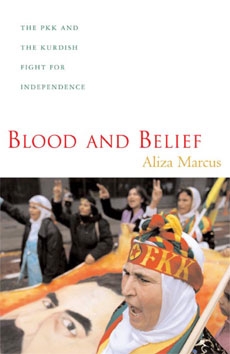
Blood and Belief: The PKK and the Kurdish Fight for Independence
One chilly fall night in 1978, a small group of university drop-outs and their friends gathered behind blacked-out windows in Turkey’s southeast to plan a war for an independent Kurdish state. Driven by their revolutionary zeal and moral certitude, the young men and women did not see any serious barriers to their success. But outsiders might have been forgiven for thinking otherwise. Turkey’s military had hundreds of thousands of experienced soldiers. A NATO member, its government was a close ally of the United States and its armed forces recently had showed their fortitude in the swift occupation of northern Cyprus. It was no wonder that those who tracked radical groups dismissed the newly founded Kurdistan Workers’ Party (PKK) as nothing more than thrill-seekers or brigands.
Within a few years these pronouncements would be proven very wrong, as the PKK swept to dominance and radicalized the Kurdish national movement in Turkey. The small group of armed men and women grew into a tightly organized guerrilla force of some 15,000, with a 50,000-plus civilian militia in Turkey and tens of thousands of active backers in Europe. The war inside Turkey would leave close to 40,000 dead, result in human rights abuses on both sides, and draw in neighboring states Iran, Iraq, and Syria, which all sought to use the PKK for their own purposes.
Turkey’s capture in 1999 of PKK leader Abdullah Ocalan, coupled with his subsequent decision to suspend the separatist war, was hailed as a great victory for Turkey and in the initial euphoria it was easy to believe the rebel group had collapsed. But the end of the war did not mean the end of the PKK nor the end of Turkey’s Kurdish problem. The PKK, which for more than a decade had been the dominant political organization of Turkish Kurds, maintained its controlling power and influence. And Turkey, by its unwillingness to seriously address Kurdish demands, despite the new peace, kept the Kurdish problem alive... |